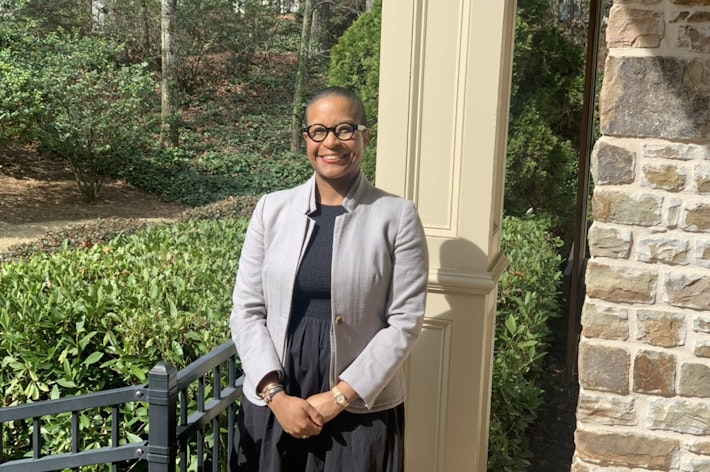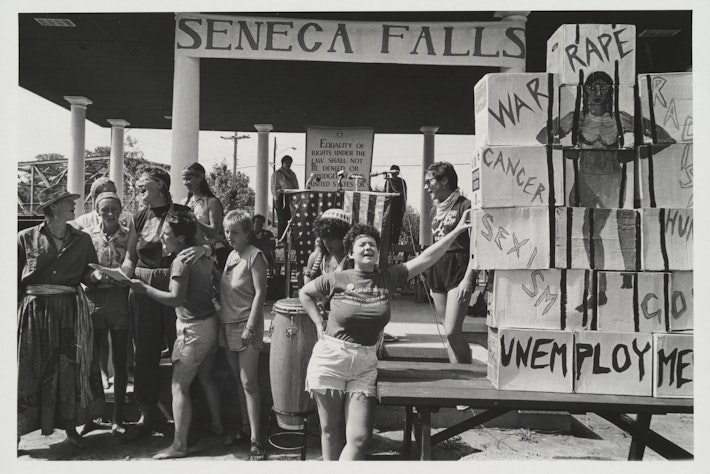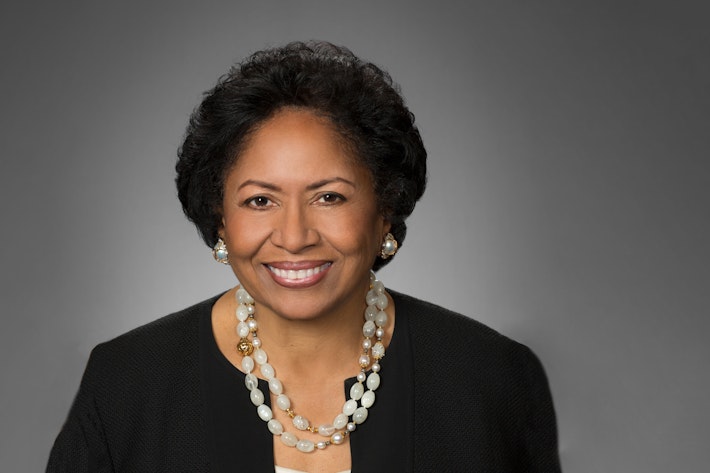The Long 19th Amendment
August 26 is a special day around Radcliffe and the Schlesinger Library. On that day in 1920, the 19th Amendment, giving American women the vote, formally became part of the US Constitution. The day also marks the founding of the Schlesinger Library in 1943.
August 26 is a special day around Radcliffe and the Schlesinger Library. On that day in 1920, the 19th Amendment, giving American women the vote, formally became part of the US Constitution. The day also marks the founding of the Schlesinger Library in 1943. Those two events are in fact closely linked: the Radcliffe alumna Maud Wood Park’s cache of suffrage materials provided the core of the Library’s initial holdings.
The Schlesinger Library is already well launched on a year of events linked to its 75th anniversary. Thanks to a four-year grant of $870,000 from the Andrew W. Mellon Foundation, we are also poised to play a leading role in shaping scholarly and popular understanding of the suffrage centennial in 2020. Building on the Library’s rich archival resources, the grant will encourage cutting-edge interdisciplinary scholarship through long-term fellowships, summer residencies, public programming and exhibits, undergraduate seminars, and an international scholarly conference. These initiatives will position the Schlesinger Library and the Radcliffe Institute as key sites of intellectual authority on American women’s citizenship, past, present, and future.
We are calling our project “The Long 19th Amendment,” evoking the ways scholars think about the “long 19th century”—a period of nation building that stretched from the American Revolution through World War I—and the “long civil rights movement,” which began with Reconstruction and continues still. Although the 19th Amendment dramatically increased the American electorate, the result fell far short of a universal adult franchise. Disenfranchisement remains a significant and growing problem today. Penal restrictions on voting, battles over immigration and naturalization, and the push for voter ID laws demonstrate that the fight for suffrage—who counts as a voter, and whose vote gets counted—is far from over.
A New Paradigm
Coming up with a bold new paradigm for understanding the history of suffrage and citizenship is an ambitious undertaking. Older narratives privileged the actions of elite white women, particularly Elizabeth Cady Stanton and Susan B. Anthony, and these tales of the Founding Mothers (many seeded by the actors themselves) remain hard to dislodge. We can start by challenging the unhelpful 1848–1920 chronology that so often bounds the history of women’s suffrage. As the historian Lisa Tetrault and others have shown, starting the story with the Seneca Falls Convention in 1848 was always contrived, downplaying previous women’s rights activism and rendering key actors invisible. The ratification of the 19th Amendment is an equally flawed end point. A significant minority of Anglo-American women had already been enfranchised by individual states, so they didn’t “win” anything when the amendment was passed. And 1920 was hardly a year of singular triumph for African American women or Native Americans, many of whom remained disenfranchised until the passage of the Voting Rights Act of 1965.
Rethinking Old Histories
New fields of research force us to rethink old histories. The activism of women of color around voting rights confirms that women’s political engagement neither began nor ended with the 19th Amendment. What distinct issues and movements drew working-class, Latina, Asian American, and indigenous women into the political process? How do notions of voting and citizenship mark bodies and define normality? Adopting a transnational or comparative approach to study of the suffrage movement will be especially fruitful. Besides challenging the deeply ingrained myth of American exceptionalism, a transnational frame will shed new light on the imperial dimensions of American women’s suffrage and on the origins of human rights thought.
The upcoming centennial of the 19th Amendment is ripe for our intervention in a broad civic conversation. With the Mellon Foundation’s support, the Schlesinger Library will advance scholarly and popular understanding of a crucial problem in American public life. Our admittedly brash goal is to set the agenda for scholarship on women, citizenship, and the vote for decades to come.
New Opportunities
Mellon-Schlesinger Fellowships
Among the new opportunities made possible by the Mellon grant is the first Mellon-Schlesinger Fellowship at the Institute in 2018–2019. “This project will not simply celebrate the “winning” of women’s suffrage in 1920, but rather will illuminate the barriers to women’s full political empowerment that continue to shape our democracy today,” says Corinne Field, an assistant professor of history at the University of Virginia, who will serve as the first Mellon-Schlesinger Fellow at the Radcliffe Institute in 2018–2019. Field’s research during her fellowship year will explore the intertwined roots of race and age segregation in American feminism, arguing that white woman suffragists first promoted the idea of generational “waves” in order to justify political alliances with white supremacists.
The deadline for applications to the 2019–2020 fellowship competition is September 13, 2018. For more information about how to apply, see https://www.radcliffe.harvard.edu/radcliffe-fellowship/become-a-fellow.
Mellon-Schlesinger Summer Research Grants
The Mellon grant will also fund eight week residencies in June and July of 2019, 2020, and 2021 for researchers doing advanced work on gender and suffrage, voting rights, citizenship, or other related topics. Successful projects will draw in meaningful ways on Schlesinger Library collections. The stipend for each award is $15,000. We will consider applications from clusters of two or three researchers as well as from individuals. College and university faculty, secondary school teachers, and other advanced researchers in any relevant discipline are invited to apply.
Applications must be received by November 15, 2018. For more information, contact Cara Raskin at slgrants@radcliffe.harvard.edu.







